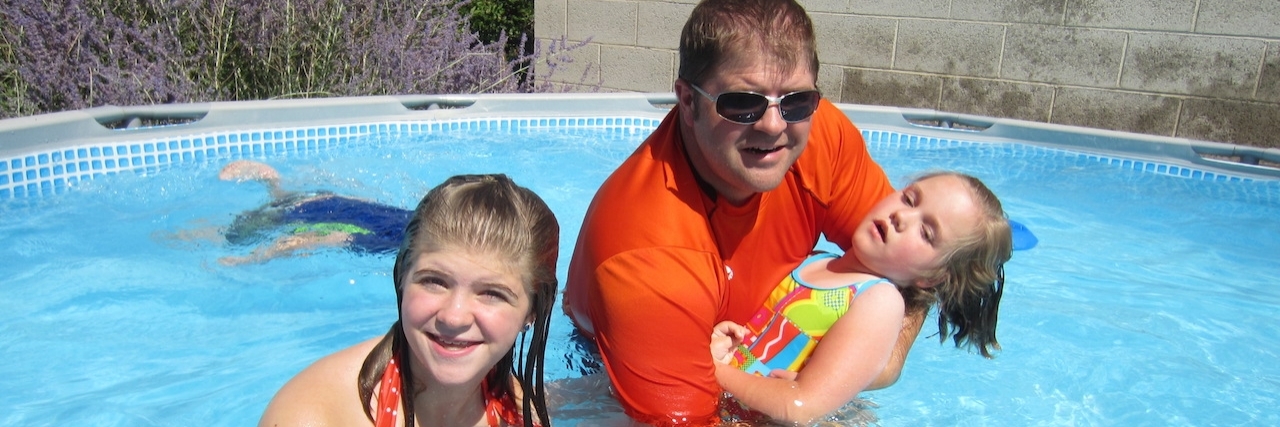What Happened When I Didn’t Trust My Nonverbal Niece's Ability to Communicate
I have a back yard pool.
I also have a niece with Rett Syndrome, who is nonverbal, non-ambulatory and really loves the water.
Last summer we invited her and her siblings over several times to splash around and enjoy a swim.
On one occasion, my niece was tired when she arrived, so we let her sleep. When she woke up, I went in to see if she wanted to get in the pool.
Because she can’t vocalize, my niece uses eye gaze (in addition to an augmentative communication device) to communicate and this time she communicated a pretty intense “no!” She almost screamed it at me with her eyes.
Wait, “No?”
I was surprised. She normally adores the water.
And because I was surprised, I made a ridiculously naive choice.
I didn’t trust the communication that had taken place between us.
No, I didn’t shove her into her suit and dunk her in the water anyway, but I did call in my teenage daughter (who spends a lot of time with her cousin and is great at understanding her messages) and asked her to verify that I had understood the message correctly.
I had. My niece said “no” and she meant it!
But that one foolish action undermined every ounce of my communication with my niece that day. In fact, she wouldn’t really interact with me for the rest of the afternoon And can you blame her? Imagine if someone called in an outsider to verify the clear message you had given them. Would you be anxious to talk to that person again?
When a person communicates in a way that is less familiar, it is easy to doubt and question and wonder if we received the right message. And to be honest, that’s fair.
As we are learning to engage with someone who communicates differently, it is fair that we recognize there is a learning curve. It is fair for us to take time to learn the nuances of language unique to that person. It is fair for us to ask further questions, to clarify meaning, or say, “I think you said ‘no,’ is that right?”
But one thing we cannot do is break the trust of that communication bond.
Two people engaging in conversation, whatever the circumstance, are creating a contract with one another. It’s an invisible handshake of sorts signifying that you matter to me, what you think matters to me and I care about what you have to say.
However, all of that can vanish like smoke if the bond of trust — that responsibility between people to share and be vulnerable so that together they can build something, support one another and grow — isn’t deeply valued and nurtured by those involved.
This is true in any communication. But it may be especially true when communication itself takes steady, focused effort.
When it takes extra time and energy to compose your thoughts, it becomes vital that those who hear them don’t overlook them.
We discredit the message as well as the person sharing it when we ignore or disregard what is said.
True communication requires trust.
The mode of communication, verbal speech, eye gaze, sign language, augmentative and alternative communication (AAC), matters much less than the message that is expressed.
And that message only really matters if there is trust on both ends of the words.
A version of this post originally appeared here at My Cough Drop.
The Mighty is asking its readers the following: Describe the moment someone changed the way you think about disability, disease or mental illness. Check out our Submit a Story page for more about our submission guidelines.

